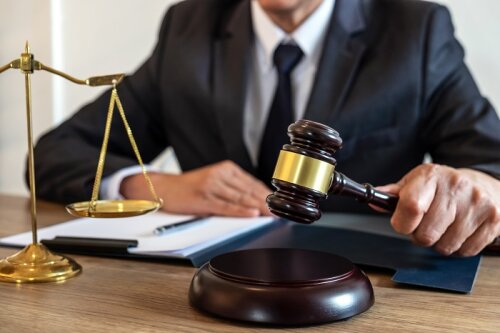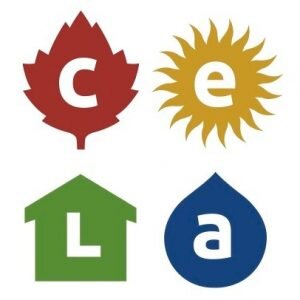Best Animal Law Lawyers in Toronto
Share your needs with us, get contacted by law firms.
Free. Takes 2 min.
List of the best lawyers in Toronto, Canada
About Animal Law in Toronto, Canada
Animal Law in Toronto, Canada, is a field that covers laws and regulations affecting animals and their treatment by humans. This includes issues such as animal rights, welfare, protection from abuse, ownership disputes, and wildlife conservation. Toronto, as part of Ontario, follows both provincial and municipal legislation that governs the treatment and use of animals. This area of law requires understanding the specific statutes and local bylaws that relate to animals, their handlers, and the responsibilities thereof.
Why You May Need a Lawyer
There are several situations where individuals or businesses may require legal assistance in Animal Law. These might include disputes over pet ownership or custody, issues related to animal cruelty or neglect charges, conflicts involving service animals, zoning issues related to livestock or exotic pet ownership, and cases involving damage or injury caused by an animal. Businesses operating in areas like veterinary services, pet stores, or animal care facilities might need guidance on compliance with animal welfare regulations or representation in legal matters.
Local Laws Overview
Toronto and the larger Ontario region have a set of comprehensive laws pertaining to Animal Law. Here are some key aspects:
- The Ontario Society for the Prevention of Cruelty to Animals Act sets the framework for animal welfare in the province, giving authority to officers to enforce animal protection laws.
- The City of Toronto Municipal Code includes various by-laws regarding animal licensing, control, and restrictions on pet ownership, such as limits on the number of pets per household and mandatory leashing in public spaces.
- The Dog Owners’ Liability Act governs issues related to dangerous dogs and liabilities, including owner responsibilities in the event of a dog attack or threatening behavior.
- Additional regulations pertain to the treatment of livestock and wildlife, ensuring humane and ethical treatment and protection of native ecosystems.
Frequently Asked Questions
1. What is considered animal cruelty in Toronto?
Animal cruelty typically involves any acts that cause unnecessary suffering or harm to animals, including neglect, physical abuse, or lack of proper care. Such acts can lead to charges under provincial law.
2. Can I own exotic pets in Toronto?
Toronto has strict regulations on owning exotic pets. Many types are prohibited under city by-laws, and owning them may require special permits or licenses.
3. How do I deal with a neighbor’s aggressive dog?
If faced with an aggressive dog, it can be reported to local animal services. Under the Dog Owners’ Liability Act, owners may be held responsible for injuries or damages caused by their pets.
4. What are my responsibilities as a pet owner in Toronto?
Responsibilities include licensing dogs, ensuring vaccinations are up-to-date, adherence to leash laws, and providing adequate care and shelter for the animal.
5. How can I report animal abuse?
Animal abuse can be reported to the Ontario SPCA or local animal services. They have the authority to investigate and take appropriate action.
6. What should I do if I find a wounded wild animal?
It is best to contact local wildlife rescue organizations for assistance, as handling wildlife can be dangerous and should be left to professionals.
7. Are there laws around pet custody in divorce cases?
While not as comprehensive as child custody laws, disputes over pet ownership can be addressed through legal negotiations, focusing on the best interest of the pet.
8. What legal issues should a veterinary practice be aware of?
Veterinary practices must comply with various regulations, including animal welfare laws, client confidentiality, and professional licensing requirements.
9. Can my landlord impose a no-pet policy?
Landlords can stipulate a no-pet policy; however, there are exceptions, such as service animals, which cannot be refused accommodations.
10. How can I become involved in animal law advocacy?
Getting involved in advocacy can include volunteering with animal rights organizations, participating in local government meetings, or assembling communities toward collective activism.
Additional Resources
For further assistance and resources related to Animal Law in Toronto, consider the following organizations and entities:
- Ontario SPCA and Humane Society: Offers resources on animal care and often engages in legislation awareness.
- City of Toronto Animal Services: Manages animal-related issues including licensing, adoption, and community safety.
- Animal Justice Canada: Provides legal advocacy for animal law and policy advancements across Canada.
- Toronto Wildlife Centre: Offers rescue services and veterinary care for wildlife found in distress.
Next Steps
If you need legal assistance in Animal Law, consider reaching out to a lawyer who specializes in this field. They can provide guidance specific to your situation and assist in navigating complex legal matters. Additionally, consult local animal services or advocacy organizations for support and preliminary guidance. Obtaining legal advice early can help prevent disputes from escalating.
Lawzana helps you find the best lawyers and law firms in Toronto through a curated and pre-screened list of qualified legal professionals. Our platform offers rankings and detailed profiles of attorneys and law firms, allowing you to compare based on practice areas, including Animal Law, experience, and client feedback.
Each profile includes a description of the firm's areas of practice, client reviews, team members and partners, year of establishment, spoken languages, office locations, contact information, social media presence, and any published articles or resources. Most firms on our platform speak English and are experienced in both local and international legal matters.
Get a quote from top-rated law firms in Toronto, Canada — quickly, securely, and without unnecessary hassle.
Disclaimer:
The information provided on this page is for general informational purposes only and does not constitute legal advice. While we strive to ensure the accuracy and relevance of the content, legal information may change over time, and interpretations of the law can vary. You should always consult with a qualified legal professional for advice specific to your situation.
We disclaim all liability for actions taken or not taken based on the content of this page. If you believe any information is incorrect or outdated, please contact us, and we will review and update it where appropriate.















